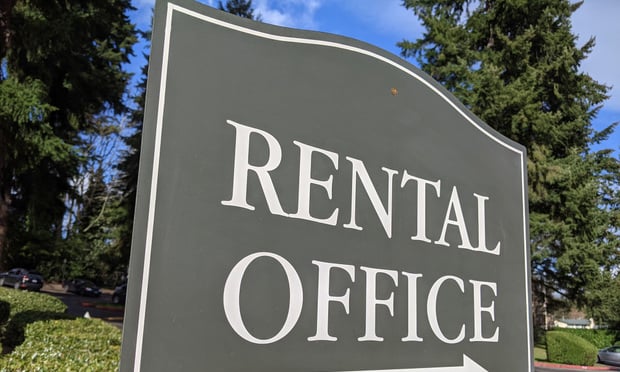© 2025 ALM Global, LLC, All Rights Reserved. Request academic re-use from www.copyright.com. All other uses, submit a request to [email protected]. For more information visit Asset & Logo Licensing.
Events
- GlobeSt. Multifamily Spring 2025 April 01, 2025 - New YorkJoin the industry's top owners, investors, developers, brokers & financiers at THE MULTIFAMILY EVENT OF THE YEAR!More Information
- GlobeSt. Net Lease Spring 2025 April 01, 2025 - New YorkThis conference brings together the industry's most influential & knowledgeable real estate executives from the net lease sector.More Information
- Real EstateGlobeSt. ELITE Women of Influence (WOI) 2025July 21, 2025 - DenverGlobeSt. Women of Influence Conference celebrates the women who drive the commercial real estate industry forward.More Information
Recommended Stories
Rentals Face Prolonged Lease-Up Periods Amid Record Supply
By Kristen Smithberg | February 05, 2025
Assets are also taking longer to stabilize and concessions are more common.
How Fire Mitigation Strategies Will Impact Los Angeles Rebuild
By Jack Rogers | February 05, 2025
Experts want “zone zero” buffers, more concrete, limited landscaping and no palm trees.
Fed Finds Credit Standards Tightening for CRE
By Erik Sherman | February 05, 2025
But in general demand for bank business loans increased.
Resource Center

White Paper
Sponsored by Placer.ai
10 Top Retail Brands To Watch in 2025
Discover which 10 retail and dining brands are positioned for potential growth in 2025, and three surprise contenders that could make a major impact.

White Paper
Sponsored by JLL
3 Key Trends Shaping Corporate Real Estate in 2025
Three trends are emerging in 2025 to transform corporate real estate. This paper explores how they will play out this year and what they mean for your priorities.

Assessment
Sponsored by Cherre
Data Management Scorecard: A Health Check for Your Data Management Capabilities and Challenges
CRE strategies and business decisions are only as strong as the data that powers them, and that data better be correct. This self-assessment will help you gauge your current data management capabilities.





